Our Blog
Blog All Items Title
All Recent Articles
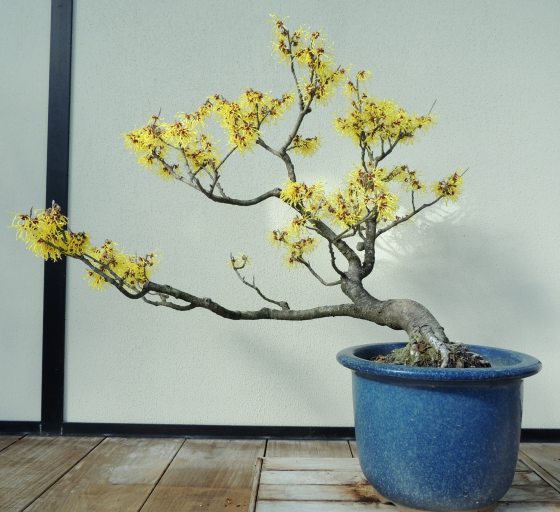
A Short History of Tiny Trees
The Japanese art of bonsai originated in China as the practice known as penjing. Early in Chinese history, trees and other plants were collected from the wild and grown in containers. The practice moved to Japan many centuries ago through social and economic interaction with China. Over the years, both countries developed various techniques that we continue to use in creating bonsai today. The Japanese word bonsai translates to "tree in a shallow pot." Though some plants in our collection date back to the early 1900s, bonsai were not part of our displays during the time of our founder, Pierre S. du Pont. In 1959, five years after Pierre’s death, renowned bonsai artist Yuji Yoshimura presented a class in our Continuing Education program. It was so well received that our staff members decided we should have some bonsai of our own.
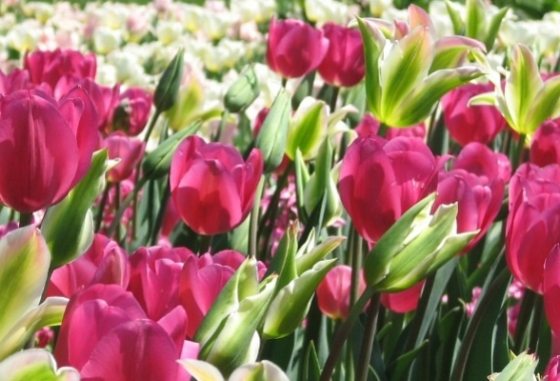
A Fresh Spring Mix
After a long winter, we’re finally seeing the spectacular colors of tulips throughout the Gardens. With color blocked borders of approximately 100,000 tulips every year, the display on the Flower Garden Walk is always an anticipated sight.
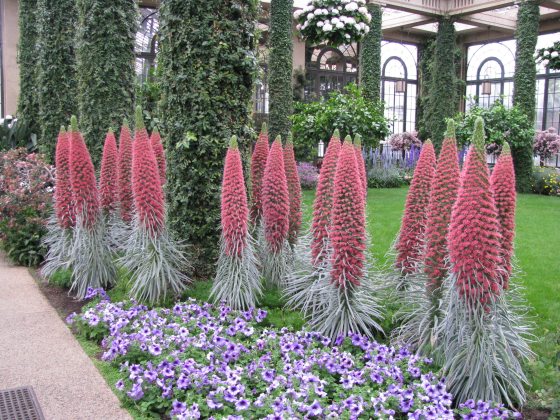
Bold and Beautiful: The Life of Echium Wildpretii
The beauty of our spring display would not be complete without the towering, striking, and unusual plant, Echium wildpretii, ‘tower-of-jewels’. While this plant stands at nearly seven feet tall, its tiny, salmon-colored flowers are what make it truly magnificent. As each tassel of flowers blooms into graceful curves along the plant, the stamens stick out as if dancing from the tiny flowers, transforming this tower-of-jewels into a whimsical display of beauty.
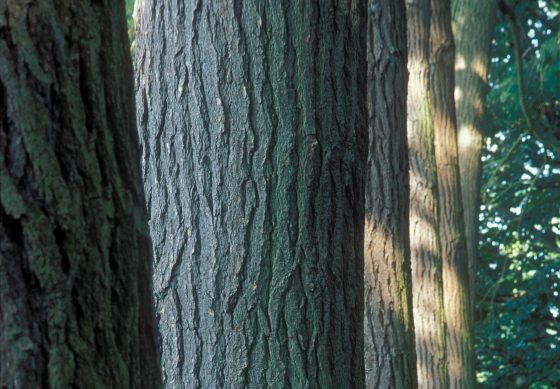
The Lore of Our Trees
Trees are some of the largest and longest-lived organisms on earth. Senior Gardener Pandora Young shares some of her favorite stories of tree lore and invites you to take another look at the relationships we all share with the living world around us.

Flurries of Activity in our Meadow Garden
"So, what's going on in the Meadow these days?" I've heard this question a lot recently, and it's easy to see why. Looking out over its frigid expanse, I sometimes feel as if the entire garden is in suspended animation until warmer weather. But while the Meadow Garden has been icy, it's hardly been put on ice!
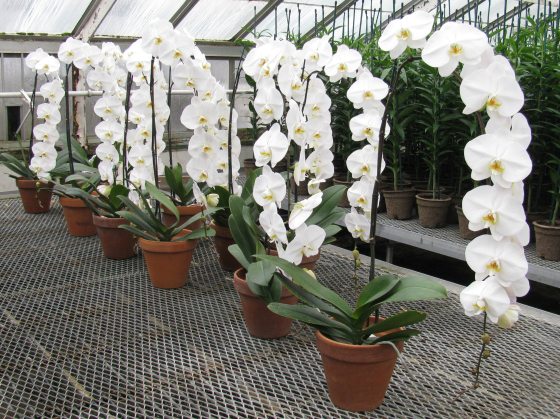
Something to See: The Rare V3
This year, we’ve brought a unique and rare Phalaenopsis Sogo Yukidian ‘V3’ hybrid to Orchid Extravaganza, which we believe is being displayed for the first time in a US public garden. The ‘V3’ moth orchids featured on the center walk of our Orangery have unusually long flower spikes with as many as 18 open flowers on a single spike (with more buds yet to open)! Photo by Trilbey Smith.
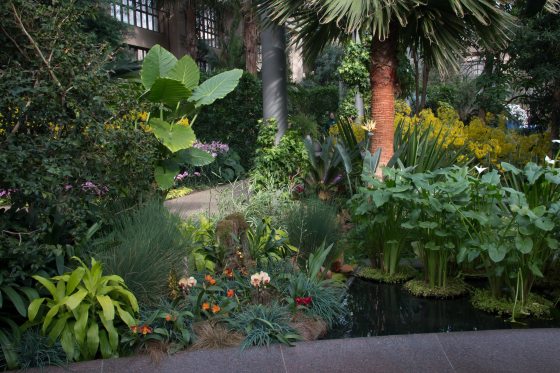
The Making of our Orchid Meadow
Learn how our gardeners created this miniature indoor landscape, which was inspired by the colors, textures, and organic feel of Longwood’s new Meadow Garden. Photo by Duane Erdmann.
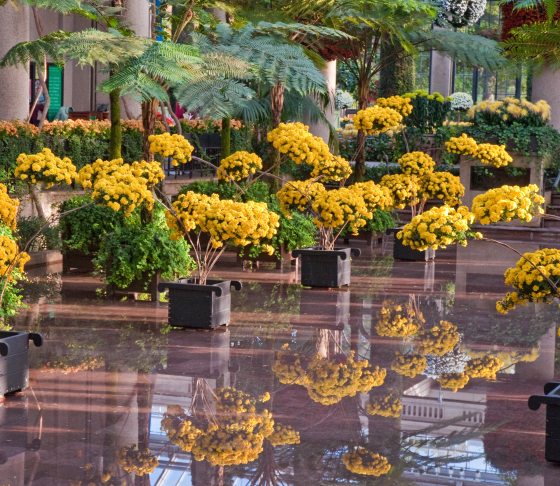
Setting the Standard
One definition of a "standard" is a norm by which similar things can be measured. In horticulture, however, a standard is a plant that is trained or grafted to have a single stem, and a crown of leaves and flowers. Combine the two meanings, and you have the degree of excellence achieved by Longwood in the beauty of its standard forms. Photo by Larry Albee.
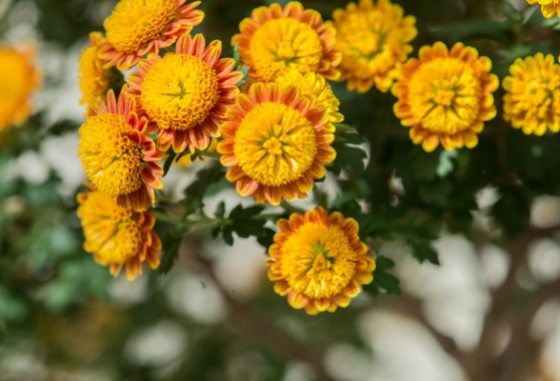
Mini Mum Magic
This fall, be sure to explore our Bonsai Display, where some of the best surprises of Chrysanthemum Festival come in small packages. Anemone Chrysanthemum x morifulium ‘Kotoi No Kaori’, photo by William Hill.
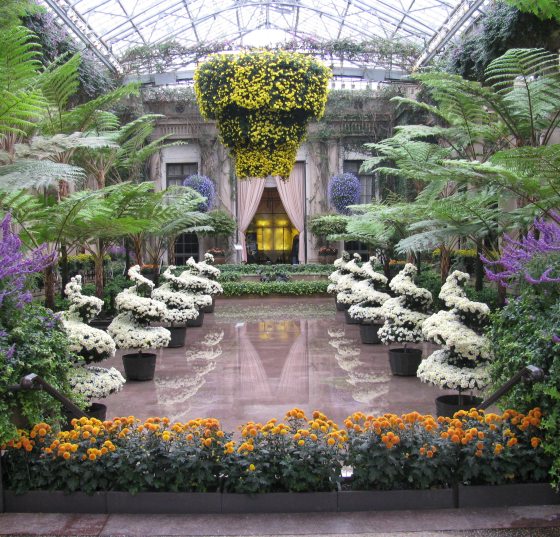
A Culture of Chrysanthemums
This year, 230,000 chrysanthemum blooms fill our 4-acre Conservatory in forms of cascades, shields, spirals, pagodas and of course, our most impressive Thousand Bloom Mum yet, featuring 1,515 blooms.
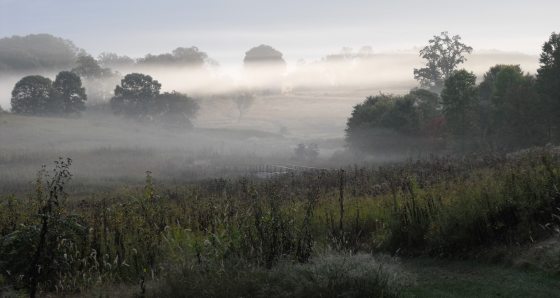
The Meadow Gardener
As Longwood's new Meadow Garden enters its first fall season, gardener Colin McCallum-Cook shares his expertise and excitement about the plants that make up the Meadow's palette of Autumn's Colors.

Reaching New Heights
Pierre S. du Pont's extraordinary Main Fountain Garden has entertained guests with its beauty and showmanship for eighty-three years. Now Longwood Gardens will carry Mr. du Pont's legacy to New Heights through the Fountain Revitalization Project that begins in mid-October.
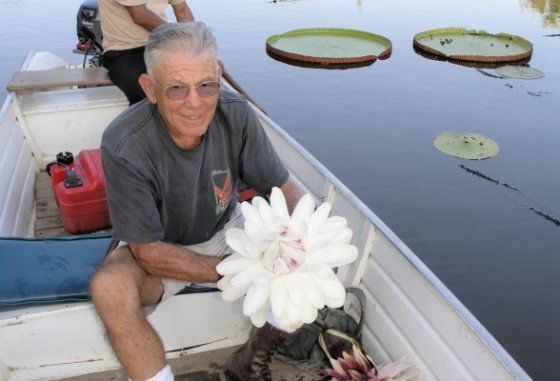
Secrets of Victoria: All in the Chemistry
In the remote flood plains of South America, a giant water lily blooms, attracts pollinator beetles, produces fruit and seed, and thus carries on through time. The discovery of Victoria regia, its world-wide cultivation, and the man-made works of beauty it inspired are the subjects of a new exhibit at Longwood Gardens entitled Secrets of Victoria: Water Lily Queen.
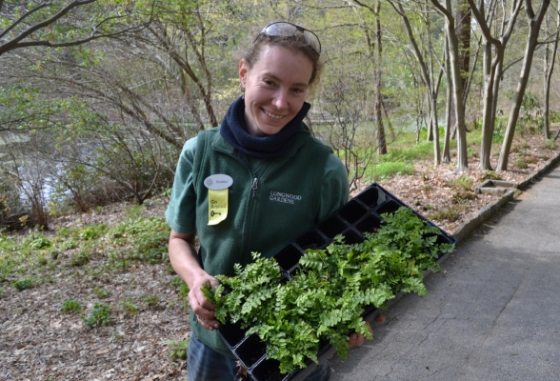
Peirce’s Woods: An Evolving Beauty
Gardens are always changing. While the Mona Lisa hangs in the Louvre looking much as it did 500 years ago, every year, every season, and even every hour you are in a garden it is constantly in flux. As a gardener you can either try to fight this change or work with it. In the 10 years I have been working in Peirce’s Woods I have done both.
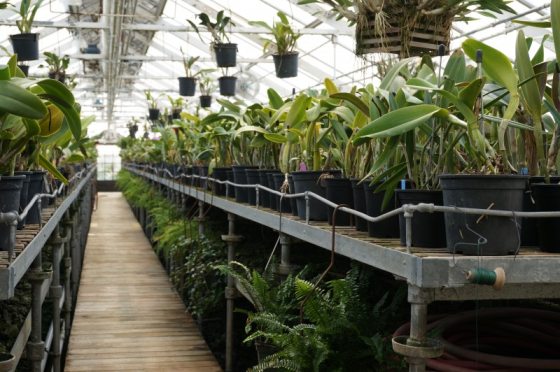
Behind-the-Scenes of Our Orchid Growing Houses
Our historic orchid growing houses, normally open only to Longwood’s staff, were constructed between 1926 and 1962. Today we use these houses to grow and care for the nearly 9,000 orchids in our collection. Visit us this Saturday, March 23, 2013, for our final Beyond the Garden Gates Day of the Orchid Extravaganza season, when you’ll have the rare chance to visit these spaces in person.
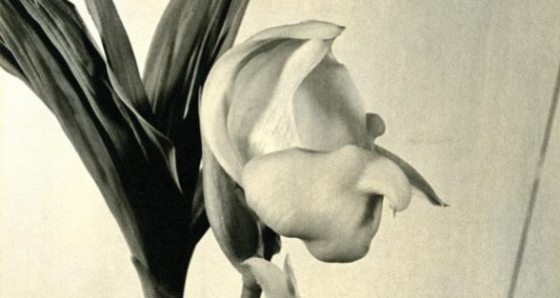
The Gift of Orchids at Longwood Gardens
The tradition of orchids at Longwood Gardens began with a gift. In 1922, twelve Cattleya orchids were included in a gift of greenhouse plants from Mrs. Dimmick of Scranton, Pennsylvania to Mrs. Alice B. du Pont. It might have ended there, as one-time gifts sometimes do. These first orchids did not fare well, due to the grower’s limited knowledge of their needs and habits.

100 Flowers: 1 Plant
One hundred different chrysanthemum flowers grafted onto one plant? What an extraordinary thought! Our mum team would love to take credit for this great idea; however, this horticulture art form has surprisingly been around for hundreds of years in China and Japan. Today you can find it on display in only two places worldwide, and Longwood Gardens is proud to be one of them.
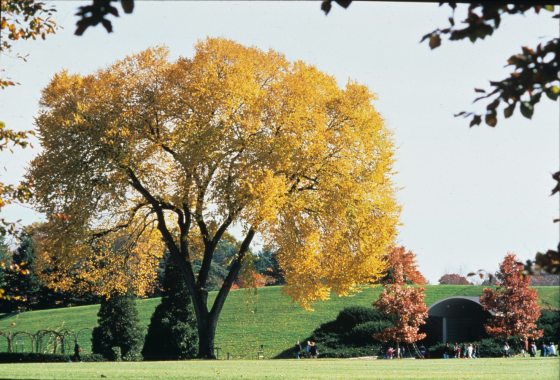
Our American Elm: A Survivor's Story
The American Elm was once a staple on the streets of America until Dutch elm disease was introduced in the 1930s. Today, small groups of elm trees can still be found in the woods or on the side of the road, but it is rare to find large specimens along streets or in landscapes. The American elm on the Cow Lot at Longwood Gardens is the only straight species of American elm remaining in the Gardens. Standing just outside the Visitor Center, this tree provides a majestic welcome to our guests, and gives everyone a taste of what's to come as they begin their way through the Gardens.
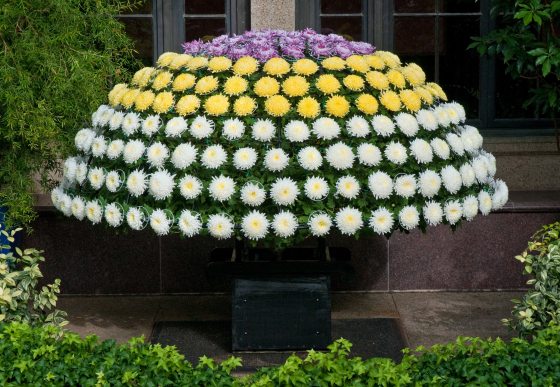
The Art of Grafting Chrysanthemums
Ever wonder what is going on in the greenhouses at this time of the year? While you are enjoying the beautiful summer display, Longwood's growers are already getting ready for fall! One of our biggest projects at this time of year is to complete the grafting process that allows us to grow the large specialty chrysanthemums that will be on display during our Chrysanthemum Festival.
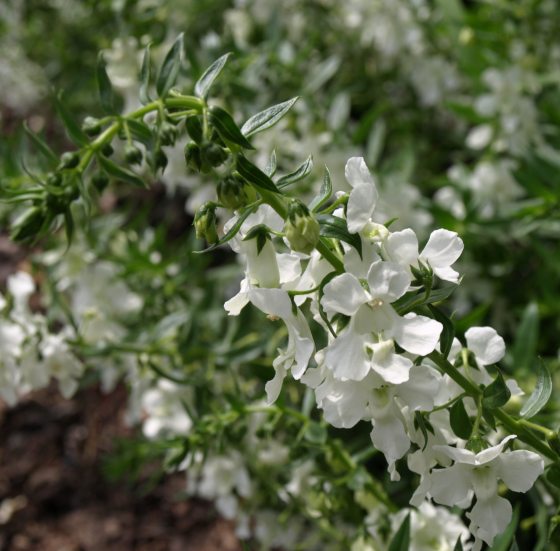
Top 10 Plants for Night Gardens
When you hear the word “garden,” chances are you think of green plants and brightly colored flowers blooming under a bright sun. But did you know that there’s such a thing as a night garden, too—a garden is designed to thrill the senses when the sun has gone down, the air is cool and the bustle of the day has diminished?